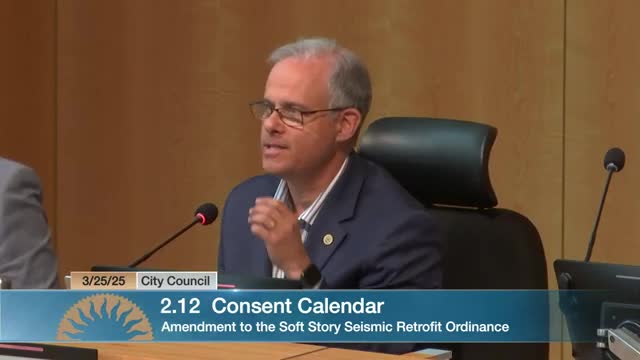Article not found
This article is no longer available. But don't worry—we've gathered other articles that discuss the same topic.
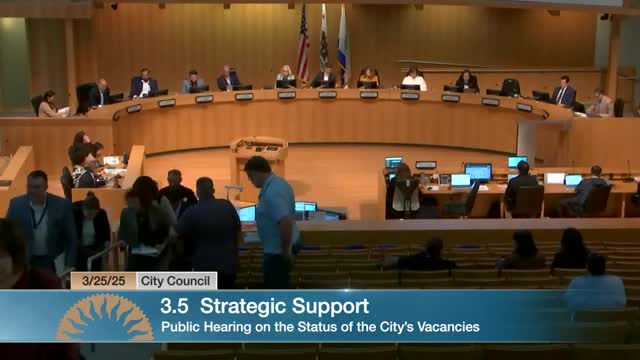
Council hears AB 2561 hearing on vacancies; HR director reports citywide vacancy rate under 10%
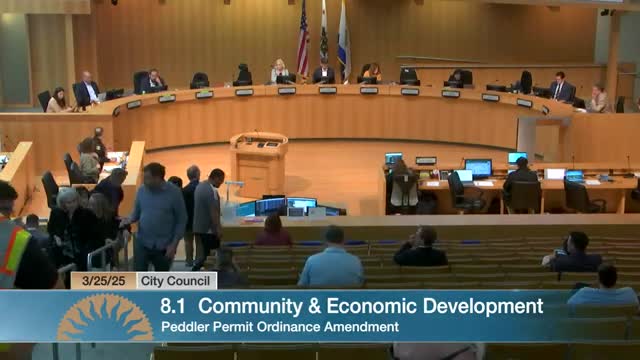
Council adopts tighter rules to curb unpermitted vending near big events, directs outreach to help vendors legalize
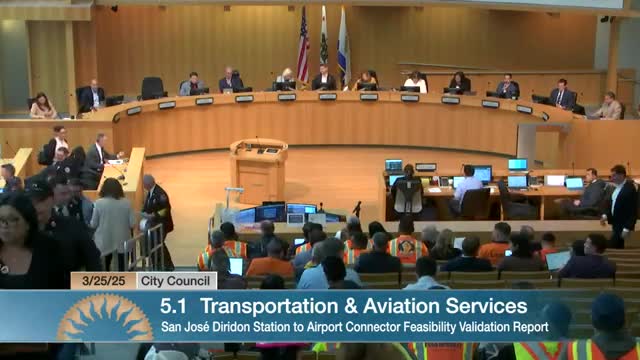
Council backs further study of Diridon‑to‑SJC connector; requests investment‑grade ridership and funding work
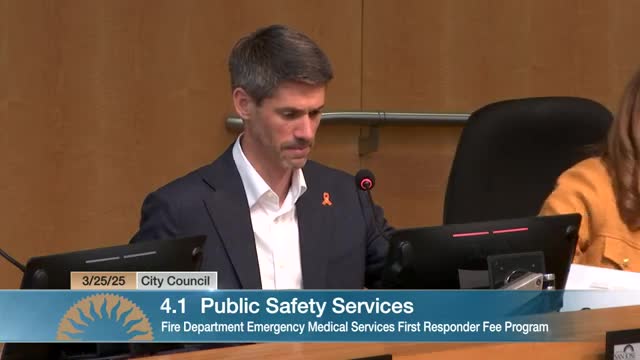
San Jose council endorses studying first‑responder EMS fee; chief says ability to treat won’t change
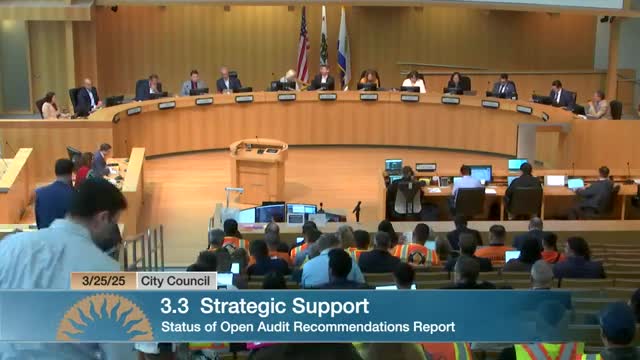
City auditor reports steady progress on open audit recommendations; council accepts status update
